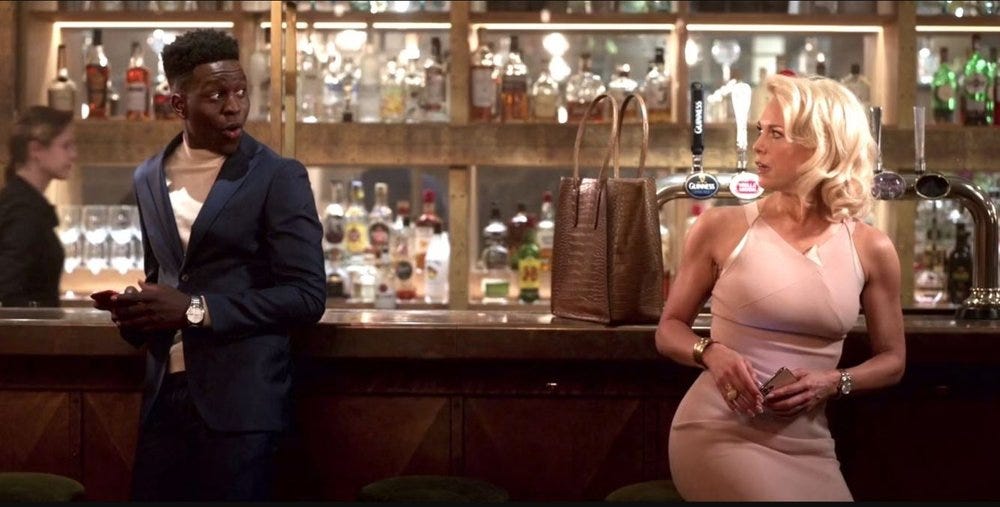Ted-ology: Power Dynamics
If there is one strong critique of my beloved show, Ted Lasso, it would be it’s laissez-faire approach to the power dynamics at play in many of the relationships throughout the series.
I would argue there are two different types of power dynamics at play over the seasons - one makes for good story telling and the other seemingly romanticizes and supports recognized dynamics that should not be elevated, which ultimately seems lazy in the writing and story arch.
In season one the dynamic that we saw most was the former. It was between Rupert and Rebecca that was at play. This was what drove the story and the tension through the season, as we saw Rupert’s hold on Rebecca show itself in different ways each episode. Each time the hurt that Rupert inflicted on Rebecca resulted in a ripple effect of sabotaging of the Club. Ted ultimately overcame and helped Rebecca recognize her own strength and meaning which came from beyond Rupert and rather within herself. This dynamic has returned in a new form in season three as Rebecca senses urgency and adds pressure to Ted with Rupert now the owner of West Ham - most notably with the addition of Zava to the team and the brief consideration of firing Ted.
The other dynamic we have seen play out in three relationships:
Rebecca and Sam
Keely and Jack
Michelle Lasso and Dr. Jacob
If this were a period piece and not set in a modern context or if the show had come out some time ago, I could likely find a way of justifying much of it - like many of us do with the humor or homophobia found in shows like Friends and Scrubs.
But because it is neither of those, the writers are responsible for their portrayal of the romantic relationships between superior-subordinate with Rebecca (Club owner) and Sam (player), Jack (Financier) and Keely (Financee); and therapist-patient with Michelle and Jacob. While with Michelle and Jacob, the faux pa around that relationship we sense the issue as Ted has expressed this, it continues to move forward but the others we have been left to simply accept as ok. Yet in reality, all of these relationships presented that if taken place in real life are ripe and prone to abuse and exploitation.
Now, does this display of power dynamics ruin the show? No.
Ultimately, I really wish the writers would have leaned into a story arch like they had started in season one. Power dynamics - again - can prove to be such a great fodder for storytelling. These romantic relationships displaying power dynamics that are recognized as ethically gray at best, which distract rather than aid in developing the overall story and character growth.
The brilliance and possibility of Ted Lasso has been it’s ability to inspire… to hope that another way might be possible. So may be aspire to do better than this.
For further reading:
It’s time for a halftime huddle: ‘Ted Lasso’ Season 3 should refocus on relationships by Linda Holmes


